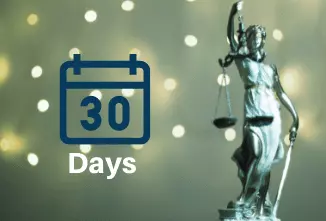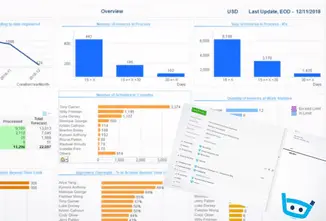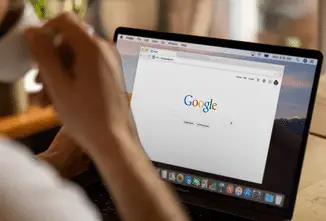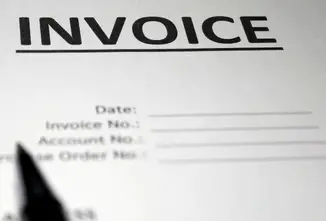30 days. Almost all Invoice terms have a 30-day limit unless you form a separate agreement with your client, but this is the required and legal period as per the law.
It can sometimes be hard to meet this requirement threshold, especially if your company is facing some financial difficulties, but as I have learned from my business, paying invoices on time can save you many headaches.
Each missed or late payment will impact your business negatively, in that; your clients will lose faith in you, and you will end up paying high late payment fees.
Do you legally have to pay an invoice?
It depends. In the UK invoices are only legally binding when both parties are registered for VAT. Not everyone is registered for VAT because you require an annual turnover of around £85,000 to register.
But invoices provide the easiest and most efficient way for both parties to track their finances and ensure that payments are made on time.
Once the invoice is sent, there are specific obligations that must be met. The first is that the sender must be paid, and the receiver is obliged to pay the invoice they receive. For this reason, the law specifies what should be included on the invoice.
What is the law on the payment of invoices?
According to UK Law, payment of invoices is under the 1998 Act of The Late Payment of Commercial Debts. [1]
This law came into effect to compensate creditors for late payments and deter clients from paying invoices late.
One essential point about this law is that it applies to commercial debt, although it is not exclusive to Limited Companies. Sole traders, freelancers, and other entrepreneurs can use the law.
It only applies to commercial goods and services, where the original terms and conditions did not include an interest provision for late payments.
The law states that; Invoices that are not paid on time entitle a company to claim interest from the customer.
In addition to that, any invoice placed after 16th March of 2013 entitles the businessman to claim other reasonable costs that may have been incurred due to collecting the debt.
The interest is specified in this case to be 8% above the Bank of England’s base lending rate, plus a compensation rate of between £40 and £100 for each invoice.
Is there a time limit on unpaid invoices?
6 Years. This is the statute of limitation for invoices. The time frames will vary as per where you reside, but basically, it’s usually six years.
After six years, and you have not made any payment on the invoice at this time, then you are not obligated to pay the invoice.
Here is the statute on different areas:
- Late payments such as Invoices – six years.
- Bankruptcy – between six and 15 years.
- Debt relief orders – six years.
- County court judgments – six years.
- Defaulted debts – six years.
- Searches – one year
- Individual Voluntary Arrangements – six years.
The statute of limitations in the USA appears to be is 2 years for oral contracts and 4 years for written contracts.
Can I legally refuse to pay an old invoice?
As long as the client has proof of service delivery, you cannot refuse to pay an old invoice. If the service provider has proof that the services or goods were delivered, you are obligated to pay the invoice, whether late or on time.
The official Invoice rule in the UK is that an invoice can be chased up to six years in the past. This is a rule under the Limitation Act of 1980. It outlines that the creditor has a right to pursue the invoice from you until it is paid.
If you do not pay, you will expose yourself to lawsuits.
Can an invoice be ignored?
No. You cannot simply ignore an invoice. This is bad, and as we have already established, invoices are legally binding, and ignoring them is a breach of specific employment laws.
Always communicate, as communication is critical. You should be able to reach an agreement with your client on when you can pay. If you ignore an invoice, you expose yourself to lawsuits, especially where there is proof of service delivery.
No invoice do I have to pay?
Until an invoice has been issued, there is no obligation to pay, but once you issue the invoice to the client, they are required to honor it, and it cannot be ignored.
However, there are times when a client may forget to issue an invoice, and in such times, you may decide not to pay.
Well, it may not work because they still have proof that they delivered the goods or provided a specific service, so it’s best if you remind them that they have not issued an invoice for payment, and especially when you wish to keep working with them in the future.
If, as a client, you have forgotten to issue an invoice, you may be worried that it is too late for you to receive the cash and maybe to think that you have lost money. Do not worry about that. The official UK rule is that you can claim an unpaid debt for up to six years.
This rule can be found under the limitation act of 1980. The specific limitation is outlined for the creditor to pursue their debt from a debtor for that period, which is an invoice’s statute of limitation.
However, when this time has elapsed, and no payment has been made on the invoice whatsoever, the client may choose not to pay it after all since the statutory period has expired, and the invoice or debt is no longer valid.
Therefore, it is prudent always to issue an invoice immediately after work is delivered; otherwise, you may end up in a long battle with the client trying to get paid.
How long should you wait for an invoice to be paid?
As a business owner, you can set your payment terms, and the most common are either 30 days, 60 days, or 90 days.
This must be included in the invoice and the contract terms and conditions, so you can caution yourself in case the customer is in breach.
You can also choose to offer discounts for upfront and early payments. If there is no agreement, then the law clearly states that 30 days is the limit from the date of receiving the goods to the date of payment.
You can use a statutory demand to request your client formally for payment on the due date.
Legal payment terms on invoice UK
The invoice payment terms are supposed to clearly spell out how you expect to be paid. This includes details such as;
- The accepted payment modes, for example, check, cash, credit card, etc.
- The currency you will accept the payment if you have customers worldwide.
- Any late payment terms such as penalties and late payment interest.
However, the most crucial payment terms on the invoice and contract should be the expected payment date after service provision or delivery of goods.
Long payment terms used to work in the past when three were only check payments and snail mail, but now, most businesses choose to send their invoices electronically and have shortened the payment date.
If you were serious about delivering the goods and services on time for your clients, you should also be serious about paying yourself on time.
Legalising an overdue invoice with an apostille:
While the statute of limitations allows you six years to collect on an invoice, legalising it with an apostille can strengthen your position and streamline the process of pursuing payment abroad. Here’s what you need to know:
What is an apostille?
An apostille is a certification issued by a designated authority within your country, confirming the authenticity of a document (in this case, your invoice).
This certification simplifies legal proceedings in countries that are part of the Hague Apostille Convention, eliminating the need for further legalisation steps within those countries.
Why get an apostille for an overdue invoice?
Enhances enforceability: An apostille makes your invoice readily admissible in court proceedings abroad, saving time and expense compared to lengthy legalisation processes.
Strengthens your claim: It demonstrates your proactive approach to debt recovery and adds a layer of official recognition to your invoice.
Facilitates communication: Apostilles are standardised across member countries, promoting clearer communication and smoother interaction with foreign legal systems.
How to obtain an apostille:
- Identify the issuing authority: This depends on where your invoice was issued. It could be the Secretary of State, a county clerk, or another designated official.
- Prepare your documents: You’ll typically need the original invoice, a completed apostille application form, and a fee. Contact the issuing authority for specific requirements.
- Submit your application: Follow the instructions provided by the issuing authority. Processing times can vary, so factor this into your timelines.
> Visit London Apostille Services Ltd to get a UK apostille.
Remember:
- Not all countries require apostilles: Check if the country where you intend to enforce the invoice is part of the Hague Apostille Convention.
- Consider legal advice: While an apostille simplifies legal processes, consulting a lawyer experienced in international debt collection is advisable for complex cases.
By legalising your overdue invoice with an apostille, you equip yourself with a valuable tool for pursuing international debt recovery, potentially increasing your chances of success and streamlining the process.
Additional Tips:
- Keep detailed records: Maintain copies of all communication and documentation related to the debt, including the apostille application and certificate.
- Explore alternative options: Depending on the situation, mediation or arbitration might be viable alternatives to legal action.




![How to write past due invoice emails that work [+ tips & templates] 4 How to write past due invoice emails that work](https://brodmin.com/wp-content/uploads/2022/04/How-to-write-past-due-invoice-emails-that-work.webp)
![How to invoice international clients [+ 10-point checklist] 5 Invoicing international clients](https://brodmin.com/wp-content/uploads/2021/10/Invoicing-international-clients-0.webp)






